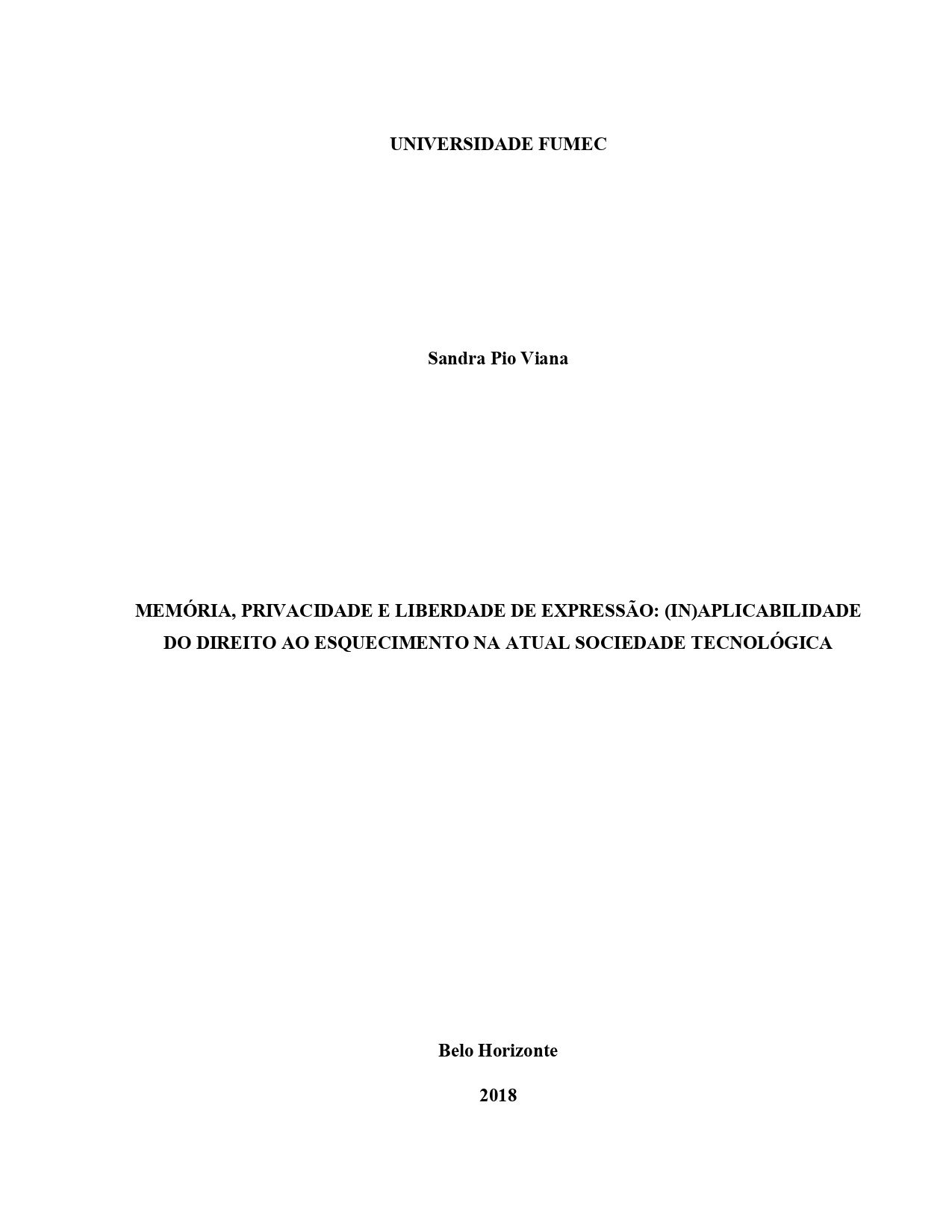Memória, privacidade e liberdade de expressão: (in)aplicabilidade do direito ao esquecimento na atual sociedade tecnológica

Visualizar/
Data
2018Autor
Viana, Sandra Pio
xmlui.mirage2.itemSummaryView.MetaData
Mostrar registro completoResumo
O presente estudo propõe-se a pesquisar as variáveis em torno do direito ao esquecimento, à luz
dos direitos à memória, à privacidade e à liberdade de expressão, analisando sua autonomia como
direito de personalidade apto para proteção da pessoa humana na atual sociedade tecnológica.
Analisará a possibilidade de esquecimento de fatos já publicados numa época em que a internet
não esquece nada e nem ninguém, buscando sua efetividade para evitar novas publicações de dados
ou de experiências traumáticas para que antigas mágoas não venham à tona. A tentativa de se
regulamentar o direito ao esquecimento no ordenamento jurídico brasileiro tem se mostrado
insatisfatória. A atual sociedade tecnológica trouxe a superinformação, em que se restabelece a
importância do direito ao esquecimento, como decorrente da autonomia privada. Confrontando
com essa superinformação, destaca-se o papel do Direito no corpo social e na construção da história
e memória, trazendo para o espaço público a necessidade de se respeitarem a liberdade de expressão
e o direito à informação. Assim, buscar-se-á na presente pesquisa analisar o problema da
privacidade e do esquecimento diante da autonomia privada, considerando a esfera particular, e a
liberdade de expressão com seus reflexos no direito à memória, representando o clamor público.
Será demonstrado na pesquisa que esse problema não é limitado à discussão da dualidade públicoprivada, mas um aprofundamento dos direitos e garantias fundamentais no Estado democrático de
Direito Constitucionalizado. Utilizar-se-á a pesquisa bibliográfica com o método dedutivo. The present study proposes to research the variables around the right to forget, in focus of rights of
memory, privacy and freedom of expression, analyzing their autonomy as a right of personality
suitable for the protection of the human person in the current technological society. This study also
analyzes a possibility of forgetting facts already published at a time when the Internet does not
forget anything about anyone, seeking its effectiveness to avoid new publications of data or
traumatic experiences in order that old sorrows do not come to the fore.The attempt to regulate the
right to be forgotten in the Brazilian legal system has appeared to be unsatisfactory. The current
technological society has brought the superinformation, where the importance of the right to
oblivion is restored, as a result of private autonomy. Confronting with this superinformation, the
highlight goes directly to the role of law in society and in the construction of history and memory,
bringing to the public space the need to respect the freedom of expression and the right to
information.Thus, the present research will analyze the problem of privacy and forgetfulness before
private autonomy, considering the particular sphere, and the freedom of expression with its reflexes
in the right to memory, representing the public outcry.It will be demonstrated in the research that
this problem is not limited to the discussion of the public-private duality, but a deepening of the
fundamental rights and guarantees in the democratic State of Constitutional Law. It’ll be used the
bibliographic research with the deductive method.
